If you’re looking to buy in an HOA, having reservations is understandable. The innumerable horror stories about how controlling they can be are too consistent to be exaggerated. In theory, HOAs are a good idea. In reality, the execution of their function and power in flawed, and they can become more trouble than they’re worth.

- Fees vary
- Owners pay for amenities whether wanted or used by all
- Majority rules
- Fees affect mortgages
- HOAs can foreclose on houses
- Restrictions on house, guests, yard, pets, outdoor storage, & vehicles
- Forced/denied green living
- Controlled/prohibited renting
- Politics & pettiness
- Unqualified/indifferent board members
- Rights must be fought for
- Unpaid fees pass to new owner
1. HOA Fees Vary in Amount and Inclusions
If you purchase a home in a community controlled by an HOA, you are required to pay their dues even if you don’t agree with them.
Fee Variations
The fees vary in amount between HOAs. They are typically several hundred dollars per month but can stretch into the thousands depending on the area’s housing prices and the amenities offered.
It is important to know that beyond this, each HOA can set its own fees. So, one house may cost you one hundred dollars in HOA fees, while a similar house in a neighboring HOA will cost you several hundred dollars.

Fee Inclusion Variations
Some fees may be “all-inclusive“, while others only cover very select things, in which case, you would have to pay their fees as well as everything else (e.g., refuse removal, rates, etc.).
This is acceptable if you are aware of it upfront. Yet, there are plenty of stories about people only discovering these exclusions later down the line.
Buying and Selling Implications
The dramatic variation in HOA fee amounts and inclusions is particularly frustrating when you are house hunting and trying to sell your house.
When house hunting, the best approach is to start with a set budget. But the confusing HOA pricing system can result in you thinking that a house is within your budget when it is not.
You go to the trouble of calling about it or even viewing it, only to find out that you cannot afford it. It’s even worse when you fall in love with the house!
There are also downsides as the seller. If buyers aren’t prepared to factor in HOA dues in addition to mortgage prices, the expenses could reduce their interest in purchasing the home.
Some buyers dislike HOAs so much that it’s a deal-breaker, making it difficult to sell a home in a neighborhood with an expensive or demanding HOA.
2. Paying for Amenities That You Do Not Use
Though you may agree with some or most of the changes made by the HOA, it can be frustrating to put money towards something you don’t think should be there.
Sometimes, you will have to put up with paying for something that you do not need because you like a house in a certain HOA. For example, everything is great, except that you have to pay to maintain a tennis court that you will never use.
Perhaps you only live there part-time due to work or family. You will still have to pay every month for amenities that you’d only be using when you are in residence in that home.
Then there is the chance that they can add an amenity after you move in.
Imagine that you deliberately chose an HOA without a swimming pool because you have no interest in swimming or you think that they encourage noise. Then, once you settle in, the HOA votes to install a pool. Now you have to help pay for the installation and upkeep.
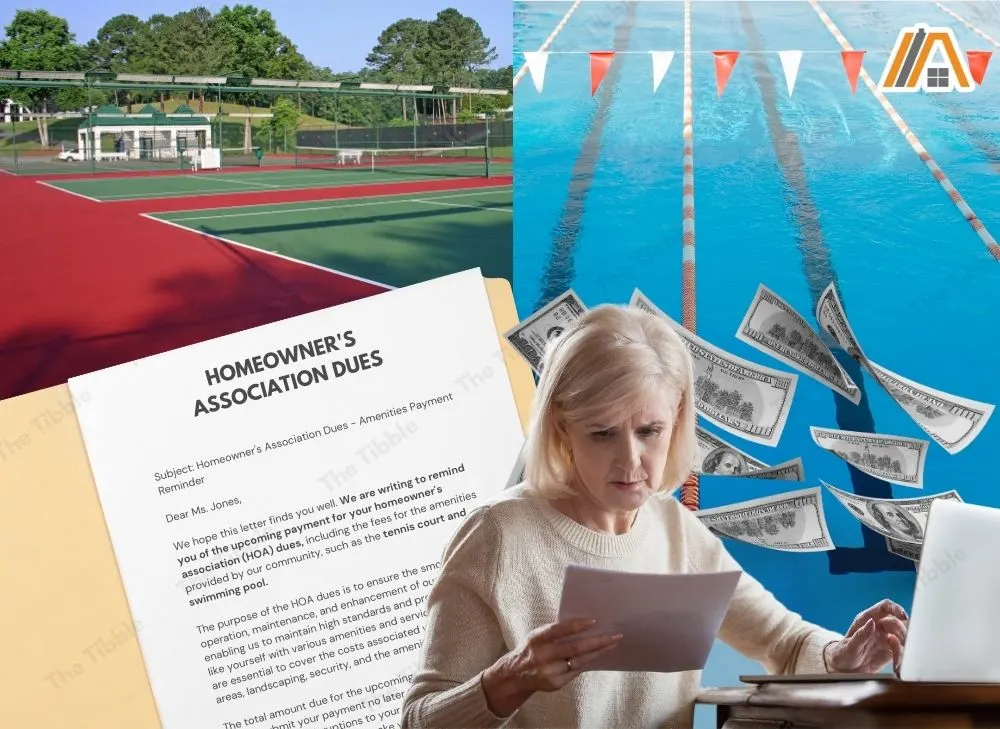
Or maybe you don’t have children, but the HOA decides to put money towards a playground.
Not everyone in a community will find value in the same amenities, and this leads me to my next point.
3. You Are at the Mercy of the Majority Vote
It’s practically impossible to make everyone happy. Some people in a neighborhood may want it to be kept quiet, while others may want to add as many amenities as possible.
If you strongly disagree with an idea that the HOA has, and everyone else wants it, you pretty much lose your voice and are forced to put money towards it.

If the HOA votes for new neighborhood development, such as the aforementioned pool or playground, then you have to pay the extra fees. You pay regardless of whether or not you want the improvement or alteration, and regardless of whether or not you have the financial capacity.
Remember that some changes will not just require a temporary development fee, they will also result in permanent maintenance fees.
These fees are also not tax-deductible in most states, including California, so you are on the hook to pay them, whether you have the finances to do so or not.
4. Refilling the Cash Reserve
Well-organized HOAs will have a reserve fund. This is actually a really good thing because if there is an emergency, then the reserve fund can cover this.
You will have to replenish the fund, but you can do this over time while immediately benefiting from having the crisis averted.
However, reserve funds can also be used for non-emergencies, following which it will be necessary to raise the funds to fill it again.
When the non-emergencies are general maintenance overhauls, it may be inconvenient, but ultimately, you will benefit.
When the non-emergencies are big new projects aimed at “benefitting the community”, you might end up with that swimming pool and a monthly “special levy” to build up the reserve fund.
5. HOA Fees Can Affect Your Mortgage
Whether it be monthly or annual, HOA fees are a financial obligation as a part of your homeownership.
HOA fees are counted in your debt-to-income ratio. If your lender is providing you with the maximum mortgage loan before the HOA fee is taken into consideration, this could create problems in the approval process.
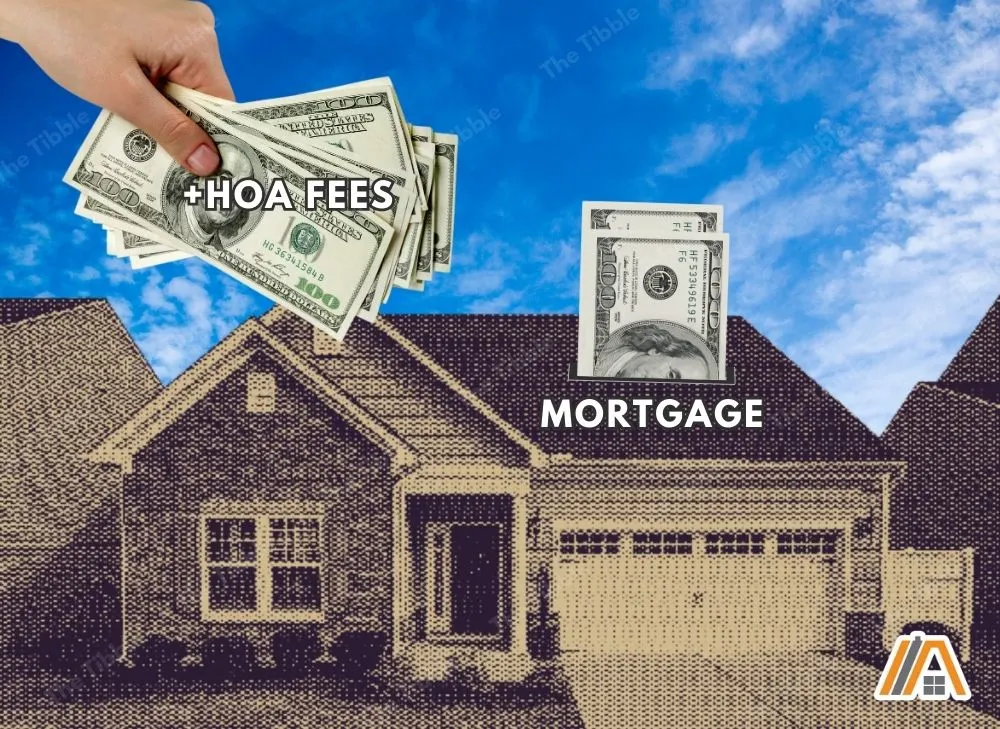
In escrow (legal holding account), when a lender is holding a portion of your mortgage payment, an increase in HOA fees can mean going through approval processes all over again.
Additionally, if the HOA fees increase, you may struggle to make the mortgage payments each month, which is stressful but also comes with pretty serious consequences.
6. Some HOAs Have the Power to Foreclose on a Home
If you don’t pay their fees, the actions an HOA can pursue against you can be frightening.
By law, an HOA can take action to foreclose on your home if you do not pay their fees!
The HOAs approach to using this power can vary. They can exert it professionally, sneakingly, or threateningly.
The professional approach would be to ensure that you are fully aware of the penalty, when it would apply, and that you acknowledge all lead-up events, giving you plenty of time to remedy the situation before it reaches foreclosure.
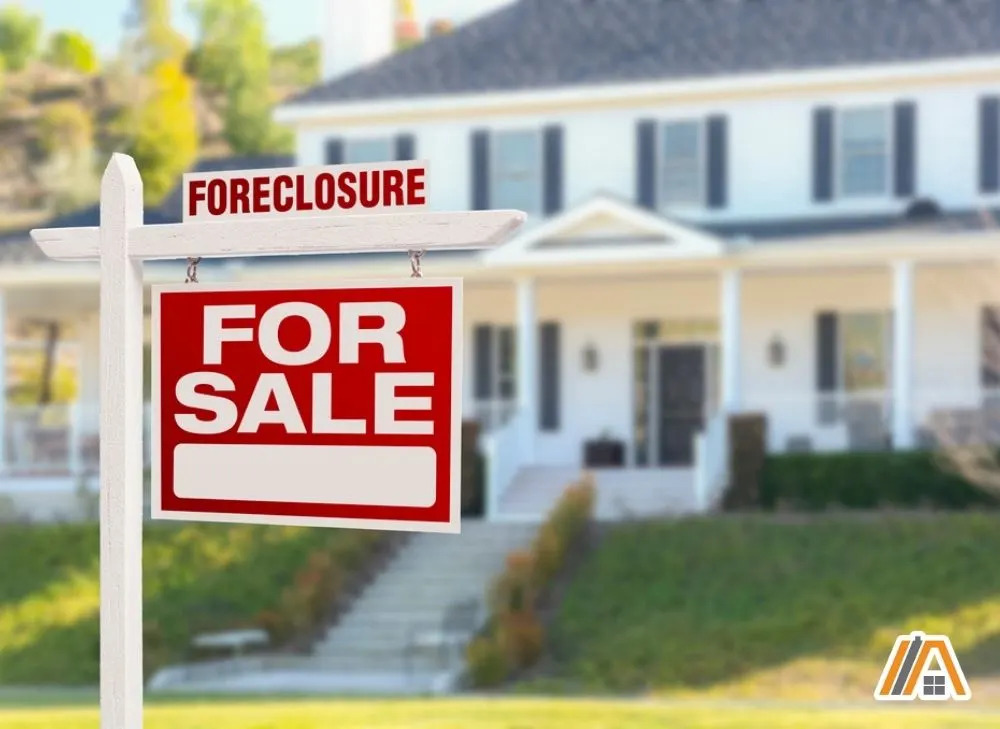
The sneaky approach might be used if the HOA is trying to get you out of the neighborhood. They will do things quietly until it may be too late for you to do anything.
Now, there will obviously be rules in place to prevent full deception and sudden notice of foreclosure, but there are certainly ways that an HOA can bend or manipulate rules to their advantage.
Some HOAs will use foreclosure as a go-to threat each time your fees are late.
This can be terribly upsetting, especially for someone who does not understand the process required for it to reach the point of foreclosure, or for someone who is struggling financially or emotionally and this is why they are late on their fees.
The exact authority an HOA has over your property varies by state. In some, HOAs are granted lien or super-lien titles.
So, if you’re planning on protesting your HOA by refusing to turn over your cash, be warned that it will either be your money or your house.
7. Lack of Freedom in Your Own Home
When you live in an HOA, you have to give up certain freedoms even when it comes to your own home. Some you may be able to accept, others may really grate you.
Home Additions
Are you considering adding to your home? Think again. Or at least hold off on getting too excited until you check in with your HOA.
HOAs can decide whether or not additions are allowed. If they are, the board can regulate what the changes look like or entail.
So, HOAs can take away the freedom you have to alter your living space, which might make it feel like it’s not your home at all.
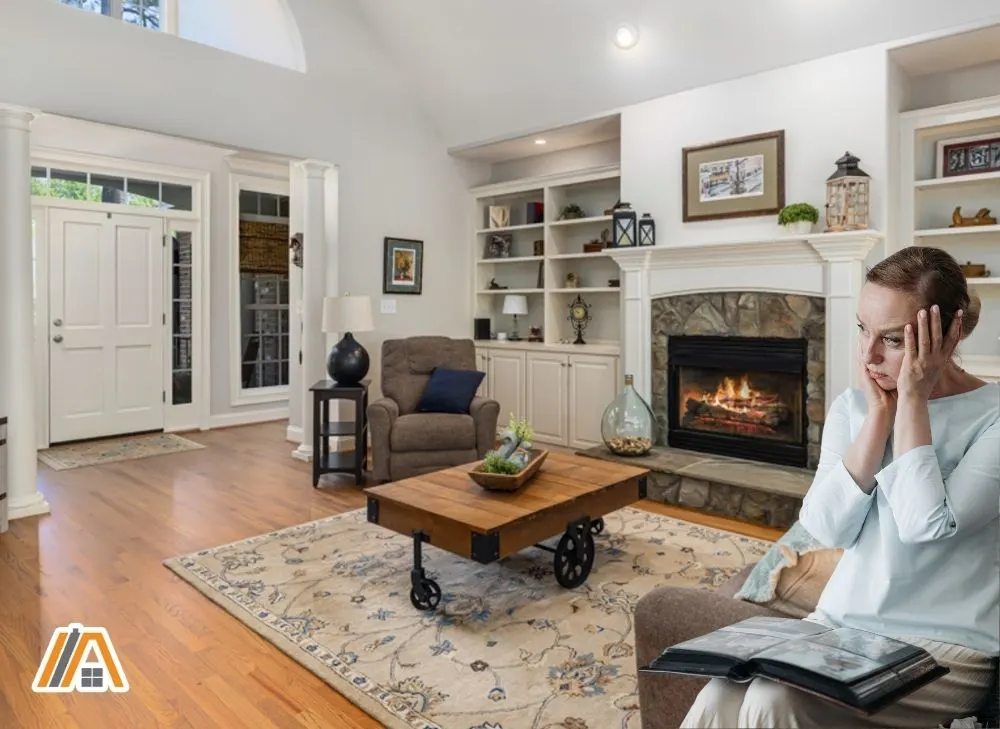
Colors
Part of making a house your home is being able to choose its coloring.
HOAs often only allow a specific color set to be used on the outer walls, windows, and doors of your house (this could be part of why “cookie-cutter” neighborhoods are the way they are).
Aesthetics are important to HOAs, so you’ll have to check what color your house is painted and make sure it’s done by a professional.
Now, I say that aesthetics are important to HOAs, but this can be a matter of what allows them to maintain the most control as evidenced in the next section.
External Maintenance Is Under HOA Jurisdiction
While it may seem helpful to have the HOA in charge of the external upkeep of your house, there are ways that this can backfire.
For example, I live in an HOA run estate, and I am not permitted to retile the steps leading down into my garden.
I have done the interior of the house up nicely, and I’d like the outside to look good, too. Currently, the tiles are poorly laid with massive gaps of plaster on the sides, they are chipped and cracked, and the riser parts are painted with a faded and flaking paint.
Yet, I was not permitted to retile them nicely and at my own cost. I was told the maintenance staff would attend to the broken tiles but it’s been six months with no word from them, so I guess it’ll only happen if I start to nag, which is a pain in the neck.
8. Guest Restrictions
HOAs regulate (to differing extents) your guests. They can have a say over:
- The number of people you can have over in a day. This can be enforced by the number of access codes you get or by the security guards at the gate.
- The number of people you can have over at a time. This can be restricted by parking.
- How long your guests can stay. If you have international friends who are looking for a place to stay, you will have to check the rules if this is going to be longer than a week.
- Whether a certain person can visit you at all. This kind of restriction will typically only occur if the individual in question did something inappropriate and/or uncontrolled.
9. Restrictions in Your Own Yard
HOAs are not just restrictive and dictatorial when it comes to your house. Their control extends to your yard as well.
Fencing
Some HOA’s only allow certain kinds or heights of fences, and some don’t allow them at all, which is particularly an inconvenience if you have pets or children you want to keep in the yard.
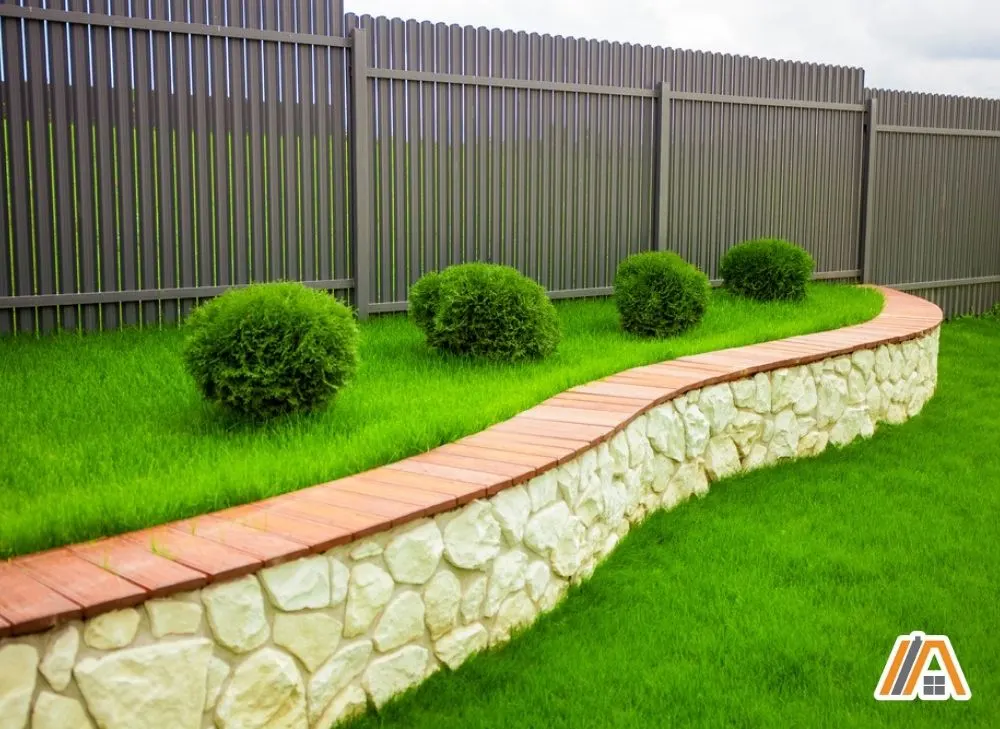
Invisible fencing is an option, but not always ideal.
If you decide to put up a fence, it will usually have to be approved by your HOA first, which involves a whole bunch of admin.
Lawn Care
HOAs can be picky about grass. Yes, that’s right—grass.
They require it to be kept well watered and won’t want it to be overgrown. Some HOA’s even specify the height of the grass or have designated mowing days so your lawn will match your neighbors!
Oh, and of course, you will probably only be allowed to mow your lawn at a certain time of the day or week to ensure noise pollution is kept to a minimum.
Plants
It’s rewarding to add a personal touch to your yard through planting and landscaping—unless you’re not allowed to get that personal at all.
HOAs can create covenants that state the dos and don’ts of landscaping in the neighborhood. Examples include what kinds of plants are allowed, how many kinds of plants you should have, and more rules that take the fun out of gardening.
HOAs can also prevent you from cutting down trees and fine you if you do, even in emergency scenarios.
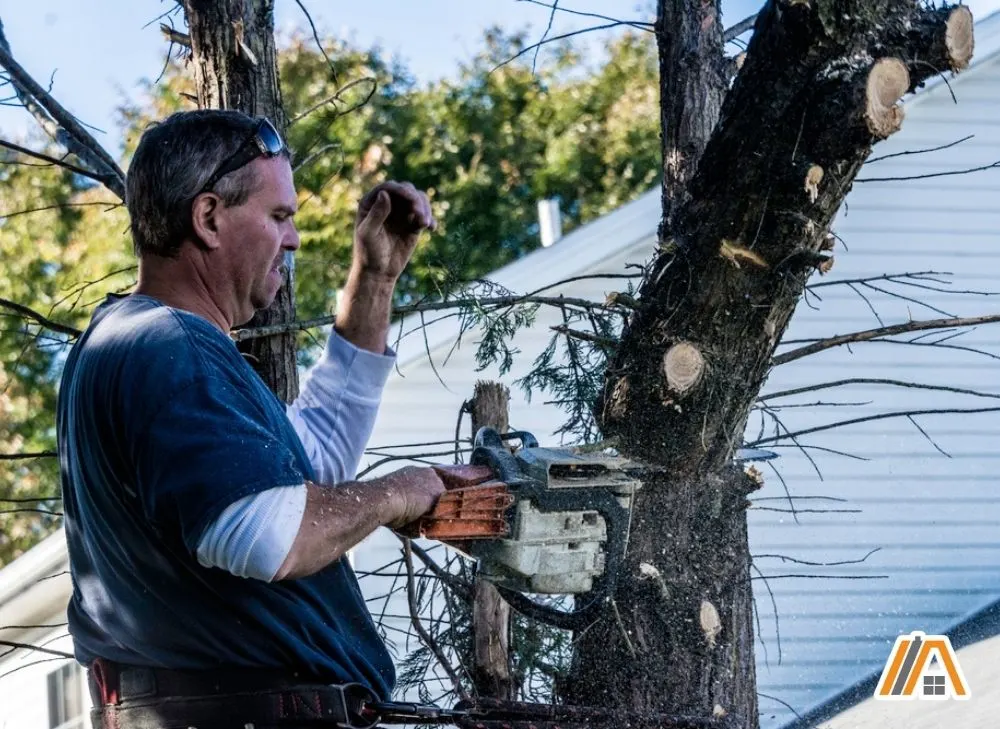
Personally, I have a tree that is slowly pushing my garden wall over. But I can’t do anything about it myself, even though it’s going to be my problem when it happens.
10. Outside Storage
Many HOA-regulated communities consist of more affordable housing for single people and small families. They are not typically luxurious, sprawling homes with untold storage space.
In these cases, it’s really helpful to turn to outdoor storage. However, this is controlled by the HOA as well because it could reduce the aesthetic of the community as a whole.
You may be able to get away with a small storage shed for your tools and paint cans if the shed is in good condition and you keep the doors closed, but there are HOAs that will have a problem with you storing your kid’s bike in the yard.
11. Pet Restrictions
To many, pets are considered family. It’s unsettling to think that an HOA could prevent you from keeping them in your home.
HOAs Can Limit How Many Pets You Own
Many homeowners’ associations set rules on how many pets you can have, and you are required to register them when you move into a home or get a new pet.
You will also be required to vaccinate them and have them microchipped.
HOAs Can Limit What Kinds of Pets You Own
HOAs can set boundaries on what kind of animals you own. They can also prohibit certain dog breeds or dogs over a specific weight.
The HOA could decide your pet is dangerous, even if they aren’t, and not welcome them in the community based on their breed or size alone.

Cats are a commonly forbidden type of pet because it is difficult to keep them in your own yard.
Birds are also often banned because of the noise potential.
Can HOAs Make you get rid of Your Pets?
It’s unlikely that HOAs can flat out make you get rid of a pet, but if you violate the rules of animal ownership, they could take action.
You could face a difficult decision between your pet or the neighborhood.
Probably one of the most common issues surrounding pets in HOA-governed neighborhoods is barking dogs. Your neighbors could get annoyed with this and complain.
If this gets taken to the HOA, they can address the issue through board meetings and persuade you to re-home your dog or be fined.
“Catios”
If you have an indoor cat but you still want to allow them into the outside air, then a catio is a great solution. Unless you live in an HOA.
They don’t want your cats roaming, but they also don’t want you to build a catio onto the side of the house or on the balcony because they look “ugly”.
12. Vehicle and Parking Limitations
Vehicle restrictions made from HOA’s can be a complete pain. Your right to park vehicles that you own in front of your house may be taken away from you.
Most commonly, HOAs prevent community members from parking RVs or boats in front of their house.
Some of them can be over the top with their regulations, telling you a car looks too old, banning certain types of automobiles, etc.
Then you have restrictions on the number of cars you can own. If three adults live together and each have their own car, you will have to apply for permission to permanently keep more than one or two there (depending on the size of your unit).
13. Going Green – Forced or Denied
Whether you’re pro-environment on an activist level or think going green is a waste of time, HOAs can control the expression of your values.
Gardens and Composting
Growing a garden is not only rewarding but great for your health and the planet. If you’re passionate about gardening, it could be heartbreaking to find your community HOA shutting it down.
HOAs can set regulations or bans on some or all kinds of gardens and compost bins.
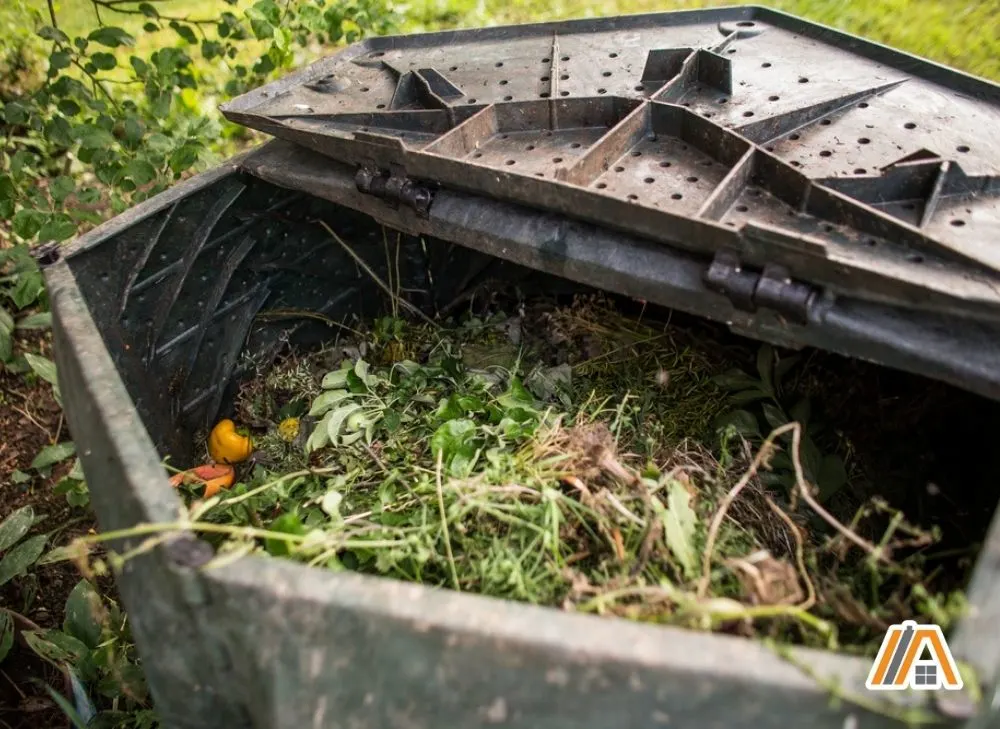
Often, HOAs’ reasoning for stifling your organic-living dream is that they don’t like how your produce sanctuaries and compost look, an argument that is shallow compared to the benefits gardens bring.
Forced Energy-Saving
For environmental goals, HOAs can require environmentally friendly lights (LEDs, motion-detecting, etc.) to be the only acceptable choice for your home.
If you don’t want to pay for pricey bulbs, you’ll lose even more autonomy over your home and money due to your HOAs’ rules.
Prevention/Control Over Solar Panel Installation
Solar panels are installed on the roof of a house, so they have the potential to changing the aesthetic of the neighborhood. They can also affect the structural integrity of the roof.
While some states protect your right to install solar power systems, some do not, and you may find yourself up against it to try and convert to a more environmentally-friendly power source.
If they do allow it, they can make you jump through a number of hoops in order to get the system installed.
I am trying to install solar and the list of requirements presented by the HOA along with their responses to my follow-up questions indicate that they don’t actually know what they need from me. They just want to tick boxes on their paperwork.
14. Incorrect Trash Disposal Can Get You In Trouble
Did you know that you can dispose of your trash incorrectly? Well, you can.
Now, I’m not talking about situations where trash is left on the curb or overflowing bins are stinking up the whole street.
I’m talking about that box you didn’t break down before putting it in the garbage can or the glass bottles you didn’t recycle.
In theory, controlling trash procedures is a good idea because it can quickly get out of hand, it is a definite visual blight, the smell can get horrific, and there are certain health issues attached to trash.
However, in the execution of their duties, HOAs can make a big deal over something really small.
15. No Option to Use Your Home as a Rental
The demand for rental properties and air B&Bs is sky-high. Renting out a property allows you to earn income when you’re not staying there—a smart option for vacation homes.
If you purchase a property you plan to rent out and aren’t aware of the rules set by the HOA you’re in for many inconveniences. Rental properties could be forbidden in the community.
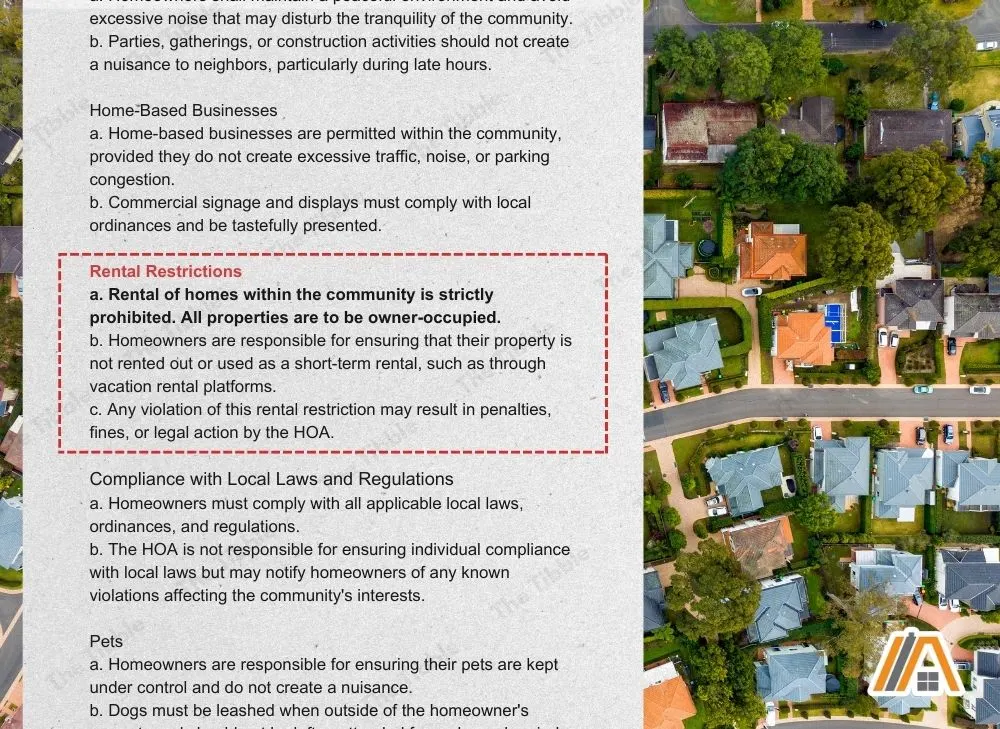
An HOA that does allow rental properties usually won’t allow you to handle it without their involvement. The majority will want access to the lease and will make you and the renter sign off on the rules.
Furthermore, even if you’re not living on the property, you won’t be exempt from the hefty fees demanded by the HOA. You could include some of these in the rent amount, of course, but it is yet another factor to weigh and decide on.
If you want to let your property out as a vacation rental because you only live in it part of the year, then you would be able to earn some extra income from this, and you would be able to deduct a portion of the HOA fees from your tax.
However, HOAs are very strict and controlling when it comes to vacation rentals or air B&Bs.
16. All the Politics and Pettiness
Your HOA can develop a personal vendetta against you and make your life miserable in a completely legal way.
If you have offended someone in the HOA or on the board, you may find your every step closely watched and any minor infringement or violation being punished to the full extent of the by-law.
That’s a really scary idea. But let’s be clear, it’s not guaranteed or even likely. It’s simply possible.
You can also be forced to deal with rude HOA members and fights between other neighbors who object to ridiculous things that one does or does not do.
In a non-HOA governed neigborhood, this would not be your problem. In an HOA, you may have to attend meetings, be solicited to get involved or sign a petition, etc., about something you have absolutely no interest in.
Of course, sometimes the most satisfying way to deal with pettiness is to engage in a bit of pettiness yourself.
If you are looking for ways you can give your HOA a hard time in return, there are many to choose from.
Just make sure you don’t lose all your legs to stand on and don’t let the pettiness of your HOA cause you to lower your own standards for your conduct.
17. HOA Board Members Are Often Unqualified
There aren’t any specific qualifications required to be a member of an HOA. You don’t want someone unqualified to make decisions about your living space, yet this is the most common situation that people find themselves in.
Sometimes, members join the HOA board for a personal agenda, not because they want the best for the community.

Issues arise when HOA members push their beliefs too far and don’t obey fair or even legal obligations.
HOA members aren’t always master organizers or decision-makers. If they make mistakes, you’ll likely have to help pay for it in increased fees.
With the over-the-top rules and restrictions imposed by HOAs, you would hope that the people running it are at least fit for the job, but this is not always the case.
18. Private Companies Are Indifferent Third Parties
If your HOA is a private company, they might be qualified, but they have no skin in the game, so to speak, which means there is less chance of leniency or consideration of personal circumstances when making decisions that affect the residents.
Hiring qualified management can lead to better communication between the members and produce better strategies for the communities. However, professionals are unlikely to value resident’s opinions over logistics when it comes to making plans and changes.
Private companies need to be examined thoroughly before deciding to have them oversee the homeowners’ association.
If their values don’t match the communities, it won’t be better than a resident-run HOA.
19. Having to Fight Them for Your Rights
If you have an issue with HOA rules, it is a tedious process to have your voice be heard. Even if they’re in the wrong, HOAs still have the upper hand in the fight. That being said, there are ways to win a battle with your HOA.
If You Don’t Know the Rules, You’re Going to Lose
It’s vital to know the HOA rules front and back, even if you disagree with them. As much of a nuisance they may be, it is considered your responsibility when you own a home in the community. It’s unlikely you’ll find respect when meeting with an HOA if you aren’t aware of their policies.
Power in Numbers
An issue is more likely to be resolved when more than one person is bringing it up. Talk to others in your community and see if they stand with you. That way, you can approach the board together, and they’ll take your argument more seriously.
20. You Can Be Liable for Previous Owner’s Unpaid Fees
If you buy a home in an HOA and the previous owner had fallen behind on their payments, then very often, in the eyes of the HOA and the law, you become at least partially responsible for paying the late fees!
You can read more about this in my article Unpaid HOA Fees From Previous Owner: Who Is Responsible?
Despite all of these reasons, HOAs are what you would call a necessary evil. They do most certainly serve a purpose, one for which there is no better solution at this current point in time.
Sources
https://cedarmanagementgroup.com/hoa-reserve-funds-how-much-money/
https://vestapropertyservices.com/why-must-i-pay-hoa-common-area-fees-if-im-not-there-to-use-them/
https://themortgagereports.com/23673/hoa-dues-can-disrupt-your-mortgage-approval
https://jcwhitelaw.com/how-to-stop-an-hoa-from-taking-your-home/
https://www.nolo.com/legal-encyclopedia/im-behind-hoa-dues-mortgage-can-the-hoa-foreclose.html
https://www.nolo.com/legal-encyclopedia/homeowners-association-super-liens.html
https://fillopainting.com/2016/07/21/tips-for-hoa-compliant-exterior-painting/
https://www.hoamanagement.com/hoa-political-signs/
https://www.bundrenlaw.com/blog/2021/february/can-an-hoa-force-you-to-get-rid-of-your-dog-/
https://www.hopb.co/blog/enforcing-pet-restrictions-whats-allowed-and-whats-not
https://www.customcatios.com/getting-catio-approval-from-your-homeowners-association/
https://gogladly.com/blog/environmental-consciousness-in-your-hoa/
https://www.grandmanors.com/blog/the-most-common-hoa-board-mistakes-and-how-to-avoid-them
https://ams-nw.com/how-to-win-a-fight-with-your-hoa-without-going-broke/
